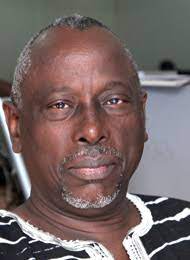Ask anyone what they think of Rwanda and Rwandans and you are likely to hear a long list of positive attributes. You will hear things like: very hard-working, incredibly brave, extra-ordinarily efficient, singularly focussed, very innovative, outstanding achievers, remarkably resilient, and many more. Rwandans are more modest in the assessment of themselves, although they, no doubt, think very well of themselves.


Ask anyone what they think of Rwanda and Rwandans and you are likely to hear a long list of positive attributes.
You will hear things like: very hard-working, incredibly brave, extra-ordinarily efficient, singularly focussed, very innovative, outstanding achievers, remarkably resilient, and many more.
Rwandans are more modest in the assessment of themselves, although they, no doubt, think very well of themselves.
Rwandans, of course, have negative qualities, but on balance the positive tip the scale.
Watching the news the last few days, I have noticed other qualities that I wish were high on the list of these extra-ordinary traits that Rwandans have. Readiness to help others and having a public spirit are some of these traits.
Europe and North America are going through one of the coldest periods in recent years. Transport has been disrupted. Deaths have occurred. Travel is extremely difficult,but people still go to work.
One particular story of people going to work in very difficult conditions caught my attention. A news report from the United Kingdom spoke of nurses who braved the freezing temperatures and treacherous roads to reach their hospitals so as to attend to their patients.
The nurses took whatever form of transport was available. They often had to take more than one where previously they took only one. In some cases they even walked.
Needless to say, it took them longer and cost them more to get to work. Butthey did and were able to lok after their patients. At the end of the day some of the nurses did not go back home.
They booked into hotels near the hospitals where they worked so that they could get to work and attend to their patients the next day without having to go through similar hassles.
Now, that is selfless service, or as Rotarians would say, service above self. It is being mindful of the welfare of others and putting it first. It is showing devotion to duty and living up to one’s responsibility.
As I watched the news, I wondered: would nurses, or indeed other public sector workers, here show a similar attitude? Probably not. Bad weather (and here we are not talking about extreme weather) is often an excuse not to go to work.
A slight drizzle or simply an overcast sky will keep most people away from work. Or if they show up, they will be hours late. The first instinct for most people is to remain warm and dry. The well-being of others or even their very survival is secondary.
The big news has been the attempted blowing up of a plane over Detroit in the United States on Christmas day. The important thing that came out of the failed attempt is that it was foiled by alert passengers.
It is possible that Umar Farouk Abdul Mutallab, the man accused of trying to blow up the plane, was inept and nervous and gave himself away easily.
But it remains a fact that his intentions were thwarted by fellow passengers.
The December 25, 2009 action by passengers was the latest in a long list in which ordinary people have averted mid-air explosions of planes. In December 2001 Richard Reid who carried explosives in his shoes was prevented from blowing up a United States-bound plane by alert and brave passengers. They wrestled him down and saved the lives of hundreds of other passengers.
On September 11, 2001, the day the twin towers of the World Trade Centre in New York and the Pentagon in Washington were hit by hijacked planes, passengers on another plane prevented a similar attack on another landmark building in Washington DC.
It cost them their lives but they prevented an attack on a major symbol of the American nation.
There are many more, less dramatic, little celebrated, but no less important , actions by ordinary people that have averted massive loss of lives and destruction of property.
In all these cases, the evil doers had eluded detection by some of the most sophisticated technology and the best- trained and best- equipped security operatives in the security business.
In all the cases disaster was prevented by ordinary people. They did not, I am sure, do it deliberately to court heroism or fame for bravery. Actually many of them go unrecognised and remain unremembered.
They probably did it out of a spirit of public responsibility to prevent the commission of a crime and ensure the safety of other people
The conclusions from these public-spirited actions are inescapable. First,people who are prepared to lay their lives on the line so that others may live must have been brought up on this important value – thinking about other people and putting their safety first.
Second, we may develop the most sophisticated technology, build the most efficient security services, but we will never replace the human being.
Again, as I reflected on these unsung acts of heroism, I wondered. How many of us would throw ourselves at a person about to hurl a grenade into a crowded market? How many would stop a person pulling down a road sign or stealing a street light, or reprimand someone urinating on the roadside?
How often do people witness rape, or robbery and don’t report these crimes? The answers to these questions are not very reassuring.
Yes, there are instances where we act as very good citizens, but there are many more where we turn a blind eye to actions that are obviously criminal.
If you doubt this, consider how many times the police have appealed to people to report crime in their neighbourhoods and what response they have got.
The police have gone to the extent of threatening people with arrest if a crime is committed in their neighbourhood and they either do nothing about it or do not report it.
We are supposed to be a religious people, but this foundation of the good religious life – that of being responsible for, not only our neighbours, but also taking care of public property – remains weak. Most people hide behind the unflattering and costly excuse, "I am not my brother’s keeper”.
If we developed public spirit and built the capacity of ordinary people to mind the welfare of others, and raise these to the level of the super qualities we already have, we might truly become a super nation.


